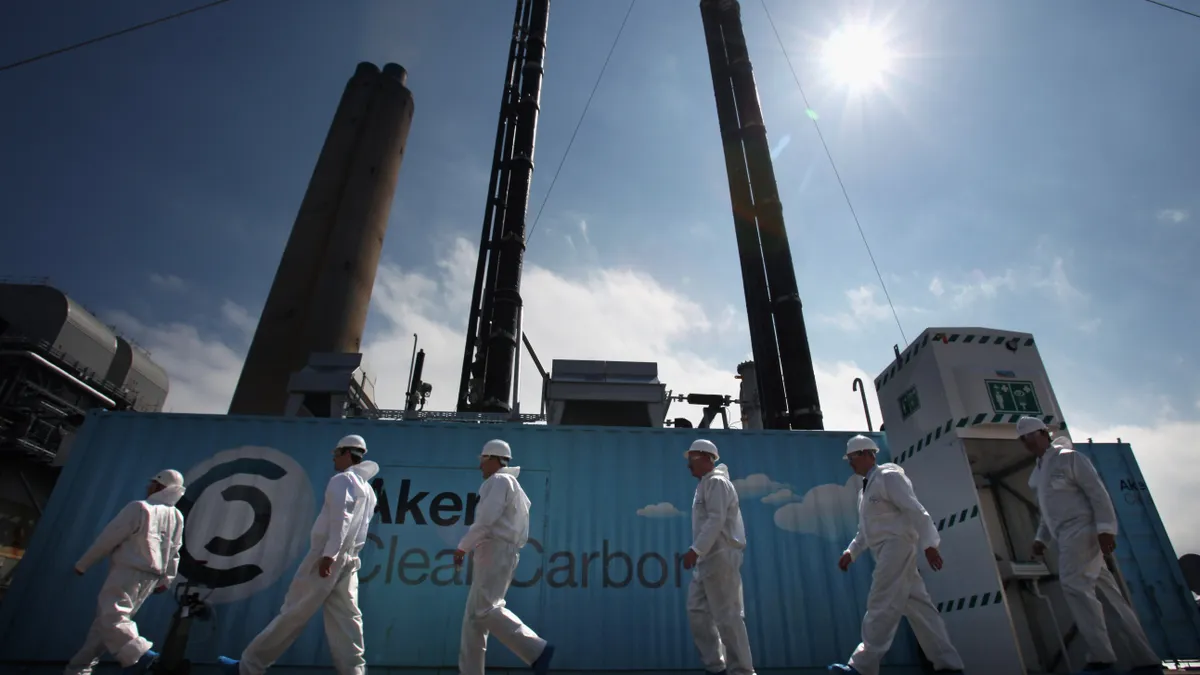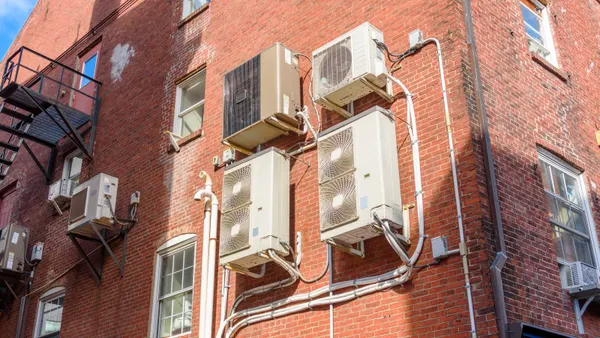Dive Brief:
- A group of organizations focused on environmental and social issues are questioning the role carbon offsets play in climate mitigation and actual emissions reductions.
- Over 80 organizations — in coalition with climate nonprofit ClientEarth — argued allowing entities to meet climate commitments through carbon credits is “likely to slow down global emission reductions,” according to a joint statement released Tuesday. The group said relying on carbon credits will also reduce the scale of funding and urgency needed to develop systems that hold emission-intensive sectors accountable and assist regions disproportionately impacted by climate change, such as the Global South.
- The group called on companies and governments to slash their carbon footprint by phasing out the production and use of fossil fuels, in addition to investing in initiatives that “ensure profound changes” within corporate supply chains and economic systems, instead of counting on carbon credits
Dive Insight:
The statement — backed by Amnesty International, Beyond Fossil Fuels, Earth Action Inc., Greenpeace, ShareAction, Stand.earth and others — expressed concern over the growing push to utilize carbon credits to offset emissions. The group cited an April proposal from the Science Based Targets initiative, a global organization advocating for corporations to set net-zero goals aligned with climate science, which allowed for the expanded use of carbon credits as part of corporations’ goals to tackle their scope 3 emissions.
SBTi rescinded the proposal shortly after due to backlash it received from its staff, which included a call for the resignation of the organization’s CEO. Staff said it took issue with the initiative not being backed by science and possibility of such a policy allowing for corporate greenwashing. SBTi announced Tuesday that CEO Luiz Amaral will step down at the end of the month for personal reasons.
In their July 2 letter, the organizations said SBTi’s initial proposal pointed to a “bigger trend of bending carbon accounting rules,” which ultimately undercut actual emissions reductions efforts.
The logic behind carbon offsets, according to the letter, is developed on the idea that an entity gets to keep emitting, even though its purchase of offsets does not actually decrease the concentration of greenhouse gas emissions it releases into the atmosphere.
“Offsetting often ends up providing the social license for high-emitting activities to continue while reinforcing past injustices,” the organizations said. “For instance, fossil fuel companies have claimed to be reducing emissions by investing in planting trees while increasing their production of coal, oil and gas.”
ClientEarth’s letter also said carbon crediting programs have revealed quality issues in the past as most of such programs are factoring in unknown variables and have to guess key parameters associated with these projects. In addition, the letter said scientific literature has found carbon credit programs make it difficult to set meaningful and realistic baselines for corporations and countries, and creates a “temptation” to set unrealistic baselines and parameters that, ultimately, generate more carbon credits.
The group said relying on carbon offsets will not fix the climate funding gap, which is essential in pursuing climate action, especially in developing regions that require financial assistance. Instead, this reliance would disincentivize entities from investing in projects and initiatives that aim to overcome this gap.










